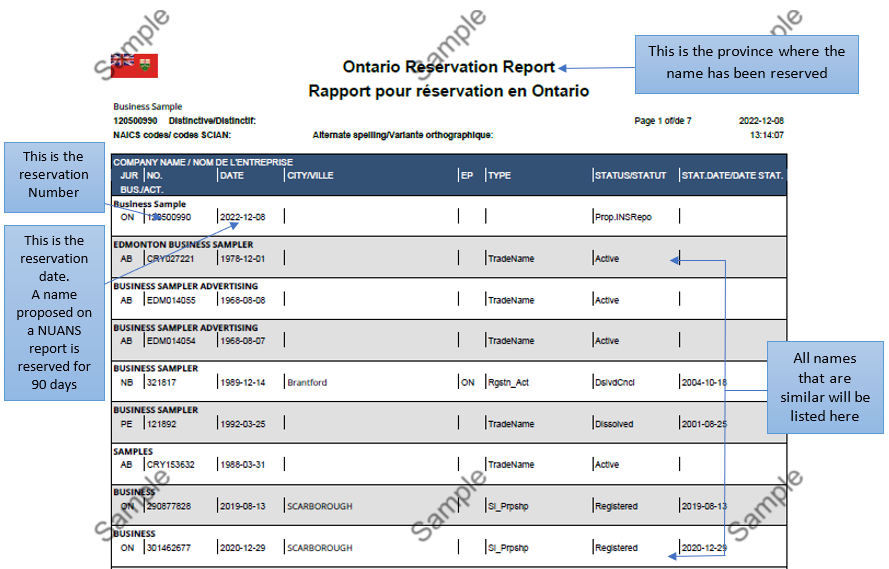All-in-One NUANS Report & Online Business Registration
A NUANS Report is a Business Name Search document used in Canada to check if a business or corporate name is available. It searches existing names, trademarks, and business records to ensure the name is not already taken. This report is required when registering corporations, sole proprietorships, partnerships, or trade names/DBAs. It helps avoid name conflicts and ensures the name complies with legal requirements. Get a NUANS Report in just 5 minutes to start your business in Canada.
Nuans
Online Business Registration Services
Welcome to INSTANT NUANS REPORT, a trusted provider of business registration and incorporation services across Canada. As an authorized NUANS member, we offer exclusive access to fast, accurate business name searches and reservations. Our dedicated team is here to deliver efficient, reliable solutions to help you incorporate your business and meet all your business needs.
Business Structure Type
Registering a business requires following specific procedures that vary based on the chosen business entity. Below is a brief overview with definitions for each type.
Name Reservation and NUANS Report: Before registering a corporation, it's often necessary to reserve a business name and obtain a NUANS (Newly Upgraded Automated Name Search) report. The NUANS report ensures that the proposed business name is unique and does not infringe on existing trademarks or business names within the jurisdiction. This step helps to prevent legal conflicts and ensures compliance with provincial naming regulations.
Sole Proprietorship: Registering as a sole proprietor involves minimal formalities. As the sole owner, you have complete control over the business but are personally liable for its debts and obligations. This structure is straightforward and does not require filing formal documents with the government, making it easy to set up and operate independently.
Partnership: Partnerships involve two or more individuals (partners) sharing ownership and responsibilities. It's essential to draft a partnership agreement outlining each partner's roles, responsibilities, profit-sharing arrangements, and dispute resolution mechanisms. Partnerships can be general partnerships, where all partners share equally in profits and liabilities, or limited partnerships, where some partners have limited liability and others have full liability.
Limited Liability Partnership (LLP): An LLP is a hybrid business structure that provides limited liability protection to its partners while allowing flexibility in management and operations. Unlike general partnerships, where partners may be personally liable for the partnership's debts, an LLP shields partners from personal liability for certain partnership obligations. Registration typically requires filing a partnership agreement with the relevant provincial authority and meeting specific regulatory requirements set forth by provincial laws.
Corporation: Corporations are separate legal entities owned by shareholders. Registration involves filing articles of incorporation with the appropriate provincial or state authority. Additionally, corporations must adopt bylaws to govern their operations and management. Shareholders of corporations enjoy limited liability, meaning their personal assets are generally protected from the corporation's debts and liabilities. Before registering, it may be necessary to conduct a NUANS report to ensure the proposed name is available and complies with provincial naming regulations.
Nonprofit Organization: Nonprofits are dedicated to charitable, educational, religious, or other socially beneficial purposes. To qualify for tax-exempt status, nonprofits must register with the Canada Revenue Agency (CRA) and comply with provincial nonprofit regulations. This registration process typically involves filing articles of incorporation or registration, drafting bylaws that outline the organization's mission and operations, and demonstrating to the CRA that the nonprofit meets the criteria for tax-exempt status.
Extra-Provincial Registration: Extra-provincial registration, also known as foreign qualification or out-of-province registration, applies when a business registered in one province or territory wishes to operate in another. It involves obtaining authorization from the new province's regulatory authority, which may require filing an application, paying fees, and submitting relevant documents such as a certificate of good standing from the original province. This process ensures that the business complies with local laws and regulations in the new jurisdiction where it intends to conduct business.



